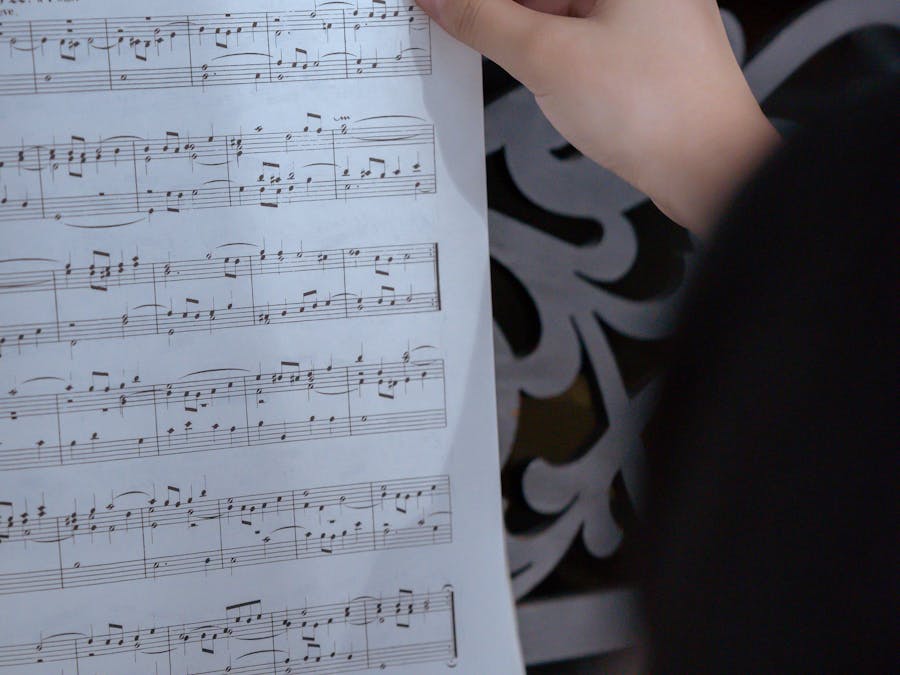 Piano Guidance
Piano Guidance
 Piano Guidance
Piano Guidance

 Photo: Alena Darmel
Photo: Alena Darmel
Pianists memorize music because it helps them to play with better musical expression. Memorizing also helps better perform technically demanding repertoire and help eliminate page turns nad breaks in the music. Memorizing music is mostly reserved for soloists and less frequent for collaborative playing.

Students who decide to take one-on-one, online or in-person, lessons will receive the teacher's full attention for the entirety of their lesson....
Read More »

To date, Luchese's performance is the longest individual performance of the piece, gathering 14 hours and a 56-minute performance. Empire of the...
Read More »
About Simply Piano Simply Piano is available for free to download on iOS and Android devices.
Read More »After those measures are solid I choose another four measures and then add them with the previous four. This is the stacking up method which allows me to not chew off too much music all at once for memory. Muscle memory is a major factor in memorization. With quality, repetition comes results. The more a musician plays the same notes and passages over and over again, the more it sticks in their fingers. This is why it’s important to always play the right notes and why tempo is not a major factor in the early stages of memorizing music. Sometimes it’s helpful to practice the piano away from the actual instrument to improve muscle memory. This consists of finding a flat surface and going through the motions. Pretend as if you are playing the keys themselves. The lack of security from having any keys press down really puts the focus on playing the right fingers and doing the right emotions note matter where you are. This is a true sign that muscle memory is working at its highest level. Musicians, in general, will also use visual aids to help guide them in memory. The concert stage can be a scary place, and with adrenaline and nerves running high it helps to have visual aids to guide your performance. Pianists will identify certain images in their minds to remind them of what’s coming next. They can associate certain smells or images with specific chords or landmarks in the music. This helps them to know what’s coming next even if they aren’t explicitly thinking about the notes themselves. When looking at the keys pianists can also take snapshots of certain notes so that they know where they are moving to in parts of the music. One thing I see pianists do a lot of is to close their eyes during performance. This might seem illogical, but the idea is to fully immerse themselves in the music and to get rid of the distractions. A huge part of playing music from memory effectively is to calm the mind and play freely. Without that, all of the hard work to learn the music can be quickly erased with a wall of mistakes.

Both attitudes are wrong. The reality is that both skills are important. In fact, I will go so far to say this. Practically every great pianist can...
Read More »
Choose Repertoire To Challenge and Entertain You Overall, one of the most important ways to keep having fun at the piano is to pick repertoire that...
Read More »
Blackbeard 1 – Blackbeard Easily the most famous buccaneer on the list and possibly the most terrifying pirate of all time, Blackbeard had a...
Read More »
$9.99 per month A monthly plan with Fender Play will cost you $9.99 per month. An annual membership is $89.99. Purchase will again grant you access...
Read More »
The word "octave" comes from a Latin root meaning "eight". It seems an odd name for a frequency that is two times, not eight times, higher. The...
Read More »
Beethoven: Easiest Piano Pieces Allegretto, WoO 61. Bagatelle In A Major, Op. 119, No. ... Bagatelle In A Minor, Op. 119, No. ... Bagatelle In...
Read More »